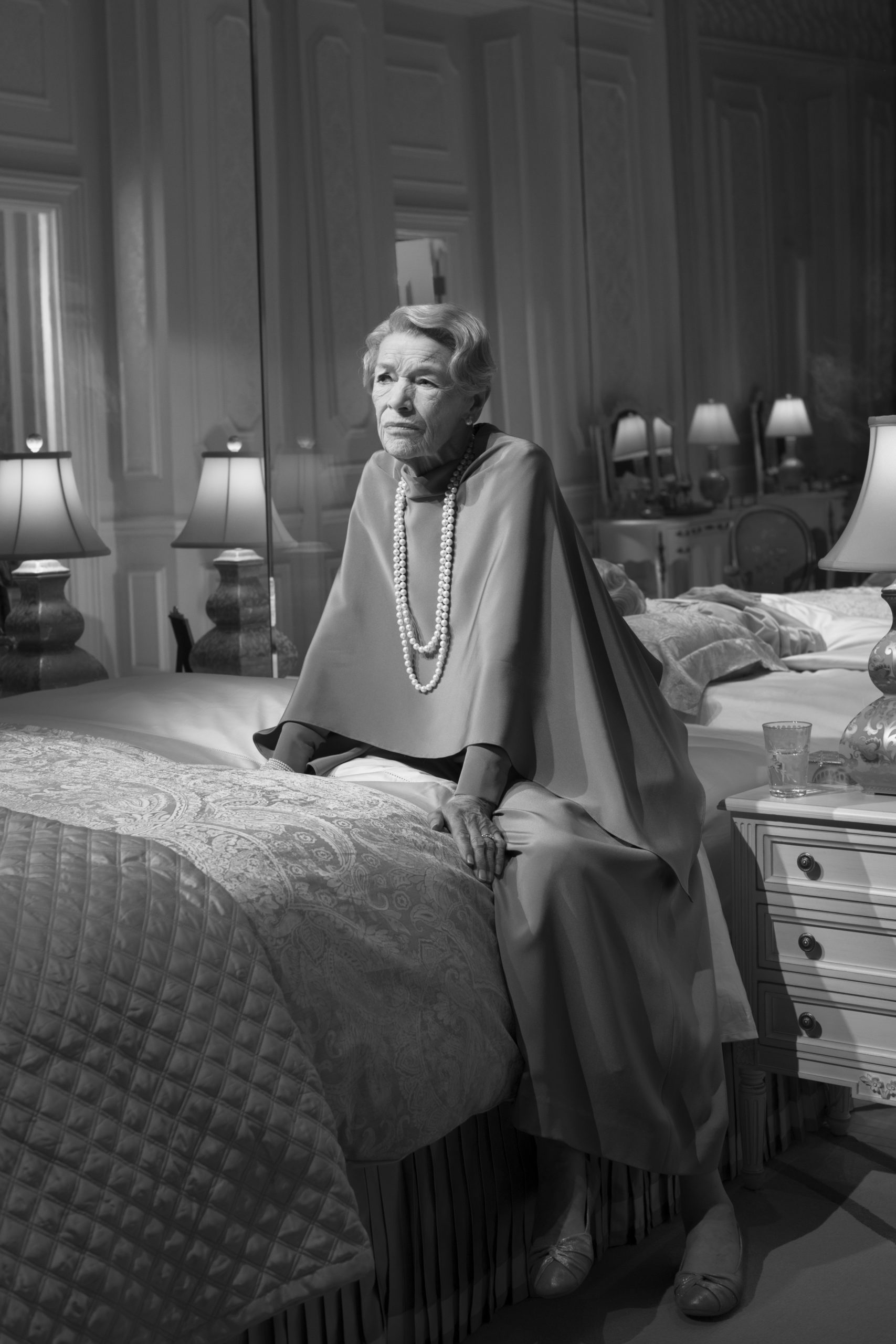
What Is a Feminist Audience to Make of Albee’s Anti-Semitic Matron?
In the first act, Jackson’s nonagenarian character, called A in the program, bemoans her incontinence, forgetfulness and other indignities of old age. She’s cranky and often nasty, impulses that many older people will sympathize with. (Albee and Joe Mantello, the director, are smartly in tune here.)
An attendant, B (Laurie Metcalf), helps her physically and banters with her in a light-hearted way that bespeaks a long friendship, or at least a respectful acquaintanceship.
Also in the room—a luxurious bedchamber hinting at both a wealthy life and impending death—is a much younger woman, C (Alison Pill), sent by A’s attorney to straighten out A’s muddled finances. (Among other problems, A forgets to pay bills, or adamantly refuses to pay some of them because she can’t remember incurring them.)
C, who seems extraordinarily obtuse and insensitive (Albee’s mildly annoying misstep), spars with A about the older woman’s age, which she insists is 91. Despite warning looks from the caretaker, the younger woman persists in telling her, no, she’s 92. “Vanity’s amazing,” the young woman says. A reiterates that she is 91. The incredibly rigid 26-year-old won’t let it go—a character trait that shows up again in the second act, when, in a magically fluid theatrical trick, the three actors become the same woman at different ages.
A’s anti-Semitism, probably unrecognized as such by her, rears its ugly head early on. She refers to a “real smart little Jew” and seems to think it a compliment. She says of another “little Jew” that “she’s nice.” Her language is stinging, of course, but, according to her caretaker, she “doesn’t mean anything by it—or if she did, once, she doesn’t now. It just falls out.”
The youngest woman is appalled, however, to which the more generous caretaker replies, “At least she didn’t say kike.” And later, “It’s the way she learned things.”
I’m of two minds here. Her demeaning attitudes toward several minority groups—including toward her estranged son, who is gay and whom she treated coldly but from whom she now wants more visits—are partly a product of her era and station. Can we condemn her for them? We certainly can’t dismiss them, since these are the ideas that led to the rise of Hitler and the initial refusal of American leaders to help persecuted Jews.
Albee has managed to expose hateful ideas (and how he was treated) while also searching for ways to explain these ideas, understand them and ultimately find a kind of acceptance, even forgiveness.
In the second act (which follows a pause, not an intermission, in this compact 105-minute production), when the two younger women become earlier versions of the dying woman, we see how she became a bitter, man-hating scold. Her husband often cheated on her, it turns out, but the one time she briefly took a lover—a handsome groom in the stable she and her husband owned—she was frightened she would lose her privileged life.
Born poor, to parents she didn’t really love, she had long dreamed of marrying a rich man, or one who would soon be so because of family money. Such a marriage was, for her, the only way to attain the life she wanted.
Is that something to condemn her for? I don’t think so, and neither, I think, did Albee, though he bore the brunt of her calculated actions, which didn’t turn out to be as beneficial as she thought they would. That’s life, as one character says in passing.
Maybe the amazing Jackson—who, in addition to a stellar acting career spent 23 years as a Member of Parliament and most recently played King Lear at The Old Vic—tips the scale toward our goodwill. Despite her shortcomings, this 91- (or 92-) year-old character is likeable, even admirable, because of her wit, straightforward manner and frequently brutal honesty about herself. Albee couldn’t help making her human.
The views and opinions expressed in this article are the author’s own and do not necessarily reflect those of Lilith Magazine.



